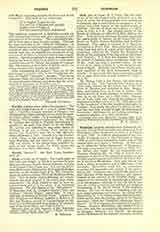

Cush (son of Chain; D. V. Chus), like the other names of the ethnological table of Genesis, x, is the name of a race, but it has generally been understood to designate also an individual, the progenitor of the nations and tribes known in the ancient world as Cushites. The list of those descendants of Cush is given in Gen., x, 7-8. The country known to the Greeks as Ethiopia is called Cush (Heb. Ku’s’) in the Bible. In its broadest extension the term designated the region south of Assuan, on the Upper Nile, now known as Nubia, Senaar, Kordofan, and Northern Abyssinia. This region is referred to in Egyptian inscriptions as Kes or Kas. More often, however, the name Cush was given to a part of the territory just mentioned, called by the Greeks the Kingdom of Meroe, at the confluence of the Nile and the Astaboras (now Tacassi). It is from this kingdom that came the eunuch of Candace, Queen of Ethiopia (Acts, viii, 26-40). Cush was long a powerful nation. In the course of the eighth century, B.C., its Kings became rulers of Egypt. Shabitku, one of them, was the principal opponent of the great Sennacherib, King of Assyria. It was in vain that Isaias warned his people not to place their trust in such princes (Is., xviii, 1; xx, 3, 5).
The African Cush is best known; but there were Cushites in Asia. The “land of Cush” of Gen., ii, 13 (Heb. text), watered by the Gehon, one of the four rivers of Paradise, was doubtless in Asia. Regina, Saba, and Dadan (Gen., x, 7) were in Arabia. The Madianite wife of Moses, Sephora, is called a Cushite (Ex., ii, 16, 21; Num., xii, 1-Heb. text). Nemrod, son of Cush, rules over cities in the valleys of the Euphrates and Tigris (Gen., x, 8-12). This text points to the foundation of the first empire in this region by Cushites. It is chiefly the relics of a Semitic civilization that have been brought to light by archaeological discoveries. But traces are not lacking, according to competent scholars, of an older civilization.
W. S. REILLY

